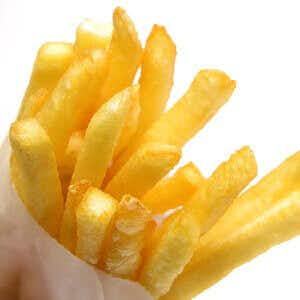
For decades we believed the experts when they repeated the mantra: “calories in-calories out.” The standard advice has always been to eat less and exercise more if you wanted to lose weight. By counting calories carefully, you should have no trouble shedding pounds.
But what if the experts were wrong? That is what science writer Gary Taubes claims in his book, Why We Get Fat. He argues that not all calories are created equal. He maintains that easily digested, highly refined carbohydrates like sugar, bread and pasta pack on the pounds.
A new study supervised by Harvard researchers offers support for this position (New England Journal of Medicine, June 23, 2011). The investigators followed more than 120,000 health professionals (doctors, nurses, veterinarians and dentists) for almost two decades. During that time the volunteers were questioned about their dietary habits, activities, lifestyle and weight.
The research showed that certain foods were strongly linked to weight gain. Potatoes, and in particular French fries, were the biggest culprits. People who often ate them were the most likely to gain weight–an average of three to four pounds over a four-year period. Potato chips also contributed more than their share to weight gain, along with sugar-sweetened beverages, fruit juice, processed meats and red meat, refined grains, sweet snacks and desserts.
Foods associated with weight loss included yogurt, nuts and vegetables. Whole grains and whole fruits (not juice) also seemed to be better for weight loss. The starring role for nuts, even peanut butter, was a surprise for many experts who often counsel people to avoid this high-fat food.
Fat, especially saturated fat found in butter, cheese and other animal products, has been dietary enemy number one for years. Research that challenges the dictum of saturated fat being responsible for obesity and heart disease is frequently ignored.
One large Danish study followed more than 50,000 men and women for 12 years (American Journal of Clinical Nutrition, June 2010). Careful records of their diet and health were analyzed. Saturated fat intake was not associated with a higher risk of heart attacks. A diet high in refined carbohydrates (sugar, bread, pizza, rolls, cold cereals and white rice), however, was linked to cardiovascular complications.
When it comes to diet, people have a hard time giving up old dogma and accepting new evidence. After we interviewed Gary Taubes on the radio, listeners battled with one another on our website: “I am 63 years old and had a triple bypass surgery two years ago after a heart attack. I want to avoid a repeat, so I am following a very low-fat vegan diet. I’ve lost 40 pounds and my cholesterol is 77. Taubes’ advocacy of a high-fat diet is so misleading!”
Another listener responded: “One size does not fit all. At 54 I had a triple bypass and I am now on a high-fat low-carb diet. My numbers are fabulous and my doctor says to keep it up.”
To learn more about why we get fat, you can download our free one-hour radio interview with Taubes (#823) at www.peoplespharmacy.com.

